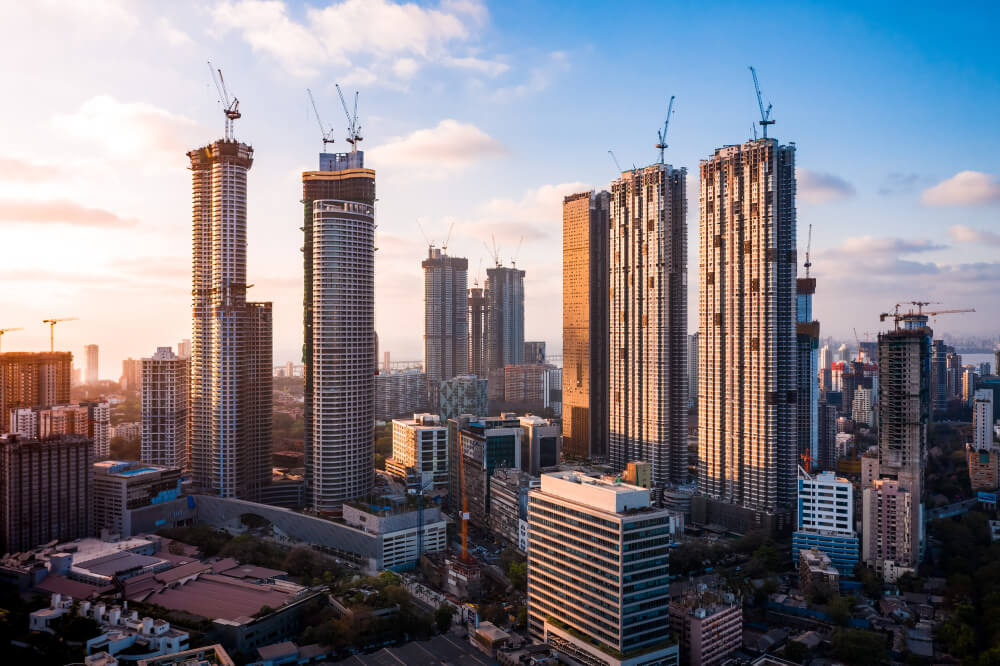Your Partner
in Legal Success
| Reading Time: 5 Minutes
What Does Real Estate Bubble Mean?

What Does Housing Bubble Bubble Mean?
A real-estate bubble, often known as a property bubble (or housing bubble in residential markets), is an economic bubble that regularly arises in local or global real estate markets, usually after a land boom.
A land boom occurs when the market price of real estate, such as; houses, rises rapidly until it reaches unsustainable levels, after which it falls. The time leading up to the crash is referred to as froth.
Schools of economic thinking respond differently to the issues of whether real estate bubbles can be spotted and averted, as well as whether they have larger macroeconomic implications.
The economy is led by supply and demand. Demand is the consumer’s desire to purchase goods and services in a specific market and period. Supply is goods and services being put on the market at a certain price according to demand. Generally, demand creates supply. However, some actions of producers -like advertising- may result in supply affecting demand.
A real estate bubble occurs when the supply-demand balance is disrupted due to limited supply and consumers making irrational purchases based on personal choices and social effects instead of focusing on efficiency.
How Does a Real Estate Bubble Form?
Definition of Investment is investing money in an income-generating moveable or immovable property.
Due to its value increasing over time, housing is considered a long-term and risk-free type of investment. Occasionally, homeowners aim to increase their profit faster than market conditions. In such cases, just like in any other market, speculators make a profit by predicting price changes and acting accordingly.
They foresee rapid increases in prices and then sell their investments -housing in this case- at a higher value (when the price finally rises). Speculators’ fast housing purchases affect demand, and prices increase as a response. As the prices increase, speculators continue to run this process.
What Happens if a Real Estate Bubble Bursts?
The real estate bubble bursts when the housing prices surpass their actual values and reach a level consumers can not afford. This is a consequence of the increasing demand. It is caused by the speculators’ rapid purchases and sales which result in high demand.
Housing purchase is a broad investment for people to make by taking loans since it is risk-free, can create rental income in the period until it is valued, and can meet the need for accommodation. As a result of this extraordinary increase in prices caused by speculators, those who take out housing loans become unable to pay them. Withhold payments lead to a decrease in demand and consequently a fall in prices.
Prices falling triggers real investors to start selling houses quickly. These hasty sales causes the prices to drop and eventually burst the bubble.
Buying and selling houses as an artificial intervention to influence demand in the market causes more problems than an unexpected drop in the prices. Difficulty in repaying loans, the economy slowing down, and decreasing incomes are the first things that come to mind. In the light of these problems, the sudden drop in prices becomes more understandable.
Is There a Real Estate Bubble in Turkey?
The prices in the residential sector tend to rise in the long run, albeit with minor fluctuations. However, rational reasons like population growth, lack of housing capacity, urban transformation, and sufficient housing quality occur before a housing bubble.
Additionally, political crises in Turkey -like the coup attempt in 2016- or economic issues caused by the pandemic, politics, natural disasters (or similar other sources) may lead investors to sell their property quickly. Such reasons reducing demand can also pave the way for speculators to enter the market.
The depreciation of the Turkish lira in the last few years, the inflation rates, and the rise in the housing prices in Turkey suggest a reasonable increase instead of the real estate bubble.
According to the latest Residential Property Price Index (2021/March) published by the Turkish Central Bank, residential property prices increased around 32% compared to the previous year.[1] The inflation rate for the same period is 16% compared to the year 2020 based on the Turkish Statistical Institute (2021/March).[2]
In the light of the comparisons between the consumer price index (CPI) and residential price index, regional analyses, and other factors over the past five years, experts state that there is no housing bubble in Turkey. Slight speculations specific to some districts called small-scale housing bubbles can be observed from time to time. However, this occurrence should not be generalized.
A real estate bubble formed in Florida, USA, in the 1920s due to the increased interest in real estate sales and the prices rising unexpectedly in a short time. Investors tried to sell their property in the following years since the residences got damaged due to hurricanes.
Eventually, the bubble burst because of excess supply; investors wanted to sell their houses, but demand was insufficient. The incident caused bankruptcy and passed into history as one of the biggest economic routs.
If we compare the current situation in Turkey and the Florida land boom of the 1920s, it is not possible to say that there is a housing bubble in Turkey.
How Can The Law Cover The Real Estate Bubble? What Happens When a Housing Bubble Bursts?
Manipulation is criminalized in the Capital Markets Law (Sermaye Piyasasi Kanunu). However, because it does not include fraudulent acts, speculation is not regulated as a crime in the legislation. Legal and criminal liability does not arise from speculators’ actions. Responsibility regarding prohibited actions, or acts that do not coincide with the general principles of law, should be evaluated separately in cases at issue. Otherwise, the market is influenced negatively due to speculators buying property to make profits since speculators expect the prices to increase in the future. It has no legal responsibility.
Furthermore, it is a well-known fact that law cannot be separated from life. As explained above, the burst of a housing bubble can lead to a wide variety of problems, from non-payment of loans to the bankruptcy of merchants. Therefore, it is possible to experience conflicts arising from the law of obligations and enforcement law between the loan user and the bank. It is also possible for merchants to experience conflicts arising from commercial law and bankruptcy law.
While awarding compensation for non-compliance with the contracts, the judge may be asked to decide by taking the market conditions into account, like reducing the amount that is decided beforehand in the penalty clauses.
When evaluating a merchant’s criminal liability in bankruptcy law, it is equitable to consider the current state of the market as well.
Likewise, in commercial law, a merchant’s duty to act prudently should be taken into account, as well as the consequences following the bubble’s bursting, when determining their legal responsibility.
In areas of law where the judge is given discretion, legal professionals must use the negative effects of a housing bubble burst on markets in their reasoning to make sure that the victims of such incidents move on with the least harm.
Article Keywords: Real Estate Bubble, Property Bubble, Housing Bubble, Economic Bubble.
Related Article: MGC Legal Wins Law Office of The Year in Real Estate Property Category.
References
- [1] Central Bank of the Turkish Republic, 2021.
- [2] Turkish Statistics Institute, 2021.



